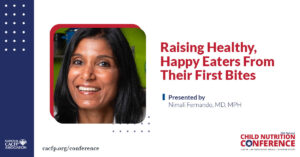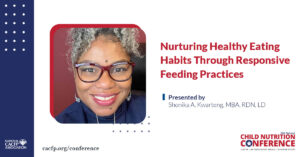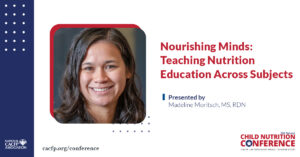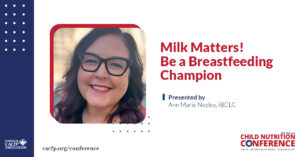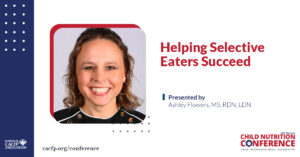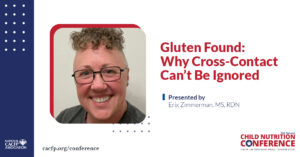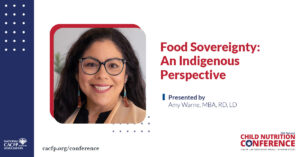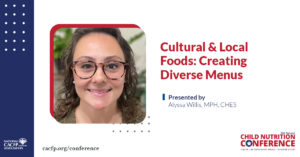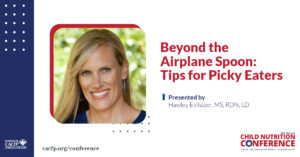2025 Nutrition Education
Raising Healthy, Happy Eaters From Their First Bites
Are you prepared for the process of helping parents develop healthy eating patterns for children? Raising healthy eaters requires a deep understanding of feeding development milestones and necessary benchmark skills. From infants to toddlers, hear the latest recommendations on early feeding and safely introducing babies to family meals to assist in preventing picky eaters.
Read MoreNurturing Healthy Eating Habits Through Responsive Feeding Practices
Responsive feeding is an attentive way of feeding young children that includes watching for their hunger and satiety cues. Explore adult and child roles in the division of responsibility in feeding and its impact on children’s physical and mental development.
Read MoreNourishing Minds: Teaching Nutrition Education Across Subjects
Child care sites can help youth develop positive relationships with food and create lifelong healthy habits through nutrition education in the classroom, cafeteria, and beyond. Explore how to incorporate nutrition education across core curricula and develop a skills-based nutrition education lesson plan that can be easily incorporated into a variety of subjects.
Read MoreMilk Matters! Be a Breastfeeding Champion
Breastfeeding parents need all the encouragement they can get, and you are an important part of their support system. Even under ideal circumstances, returning to work and maintaining a milk supply can be challenging. Learn how to use evidence-based best practices, techniques, and policies to support families and help them reach their infant feeding goals.
Read MoreHelping Selective Eaters Succeed
Have you ever wondered why some children refuse to eat the foods on your menu, no matter their variation or relevancy? Children who are selective eaters often have different reasons why. From learning to tolerate the presence of food at the table to tasting new food entirely, explore how to support selective eaters who struggle with the territory of unfamiliar foods.
Read MoreGluten Found: Why Cross-Contact Can’t Be Ignored
If your facility serves few clients with celiac disease (CeD) or non-celiac gluten sensitivity (NCGS), does it matter if you use the same cutting board for gluten-free (GF) and regular food? Managing gluten exposure can feel burdensome, but has significant health impacts. Explore the effects of continuous low-level gluten exposure, how to improve kitchen practices, and cross-contact preventative strategies.
Read MoreFood Sovereignty: An Indigenous Perspective
Food sovereignty is the right of peoples to healthy and culturally appropriate food produced through ecologically sound and sustainable methods, and their right to define their own food and agriculture systems. Learn how food sovereignty and food security intertwine, how Native Nations are strengthening sovereignty through food, and how we are reclaiming our food ways through various initiatives.
Read MoreCultural & Local Foods: Creating Diverse Menus
Food, the one thing most humans can relate to regardless of where they are from, looks very different around the world. It can be used to learn about other cultures and agriculture. Discover cultural dishes and ingredients from around the world, how to incorporate local produce into your menus, and ways of engaging parents and the community to promote diverse healthy eating in early childhood.
Read MoreCooking Up Fun: Engaging Kids in Cooking Activities
Engaging kids in cooking activities is a fun, helpful way to encourage them to try new foods and teach them valuable skills. Learn about age-appropriate cooking activities and ways to incorporate cooking with kids into your program.
Read MoreBeyond the Airplane Spoon: Tips for Picky Eaters
Picky eating is not just for toddlers. Learn the common causes of picky eating and gain practical tips for presenting and serving food to increase acceptance and make a huge impact.
Read More
